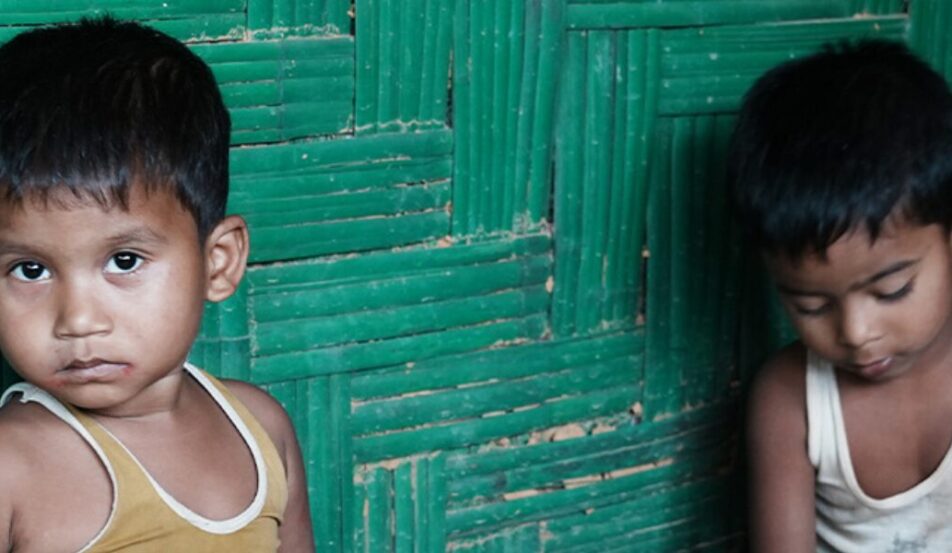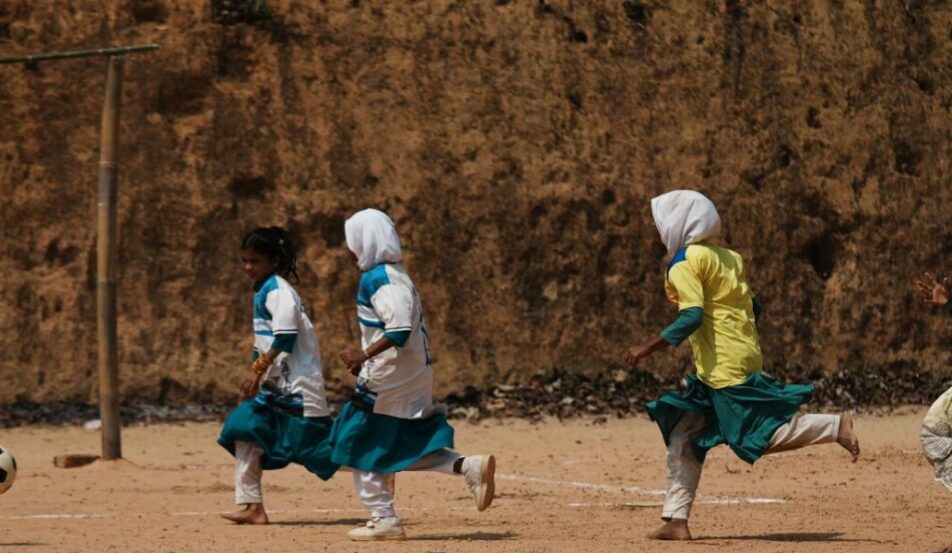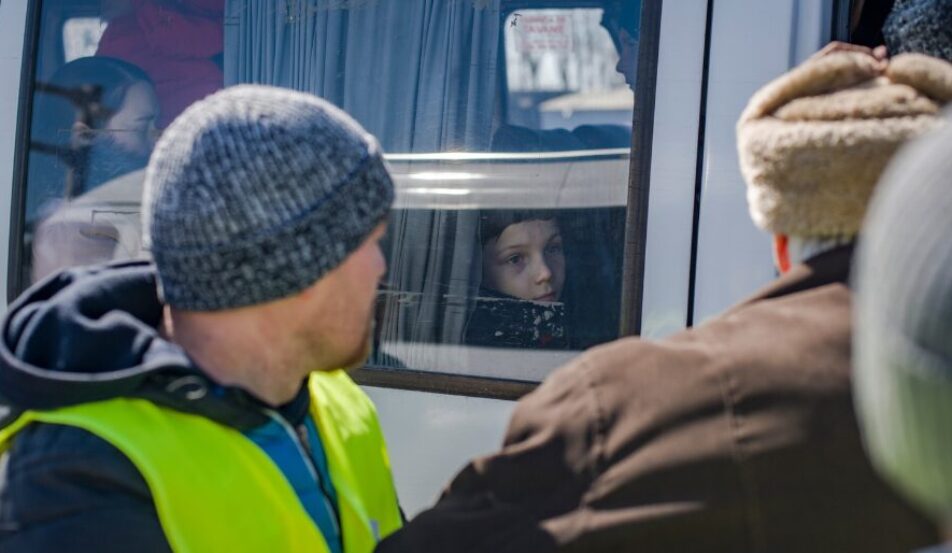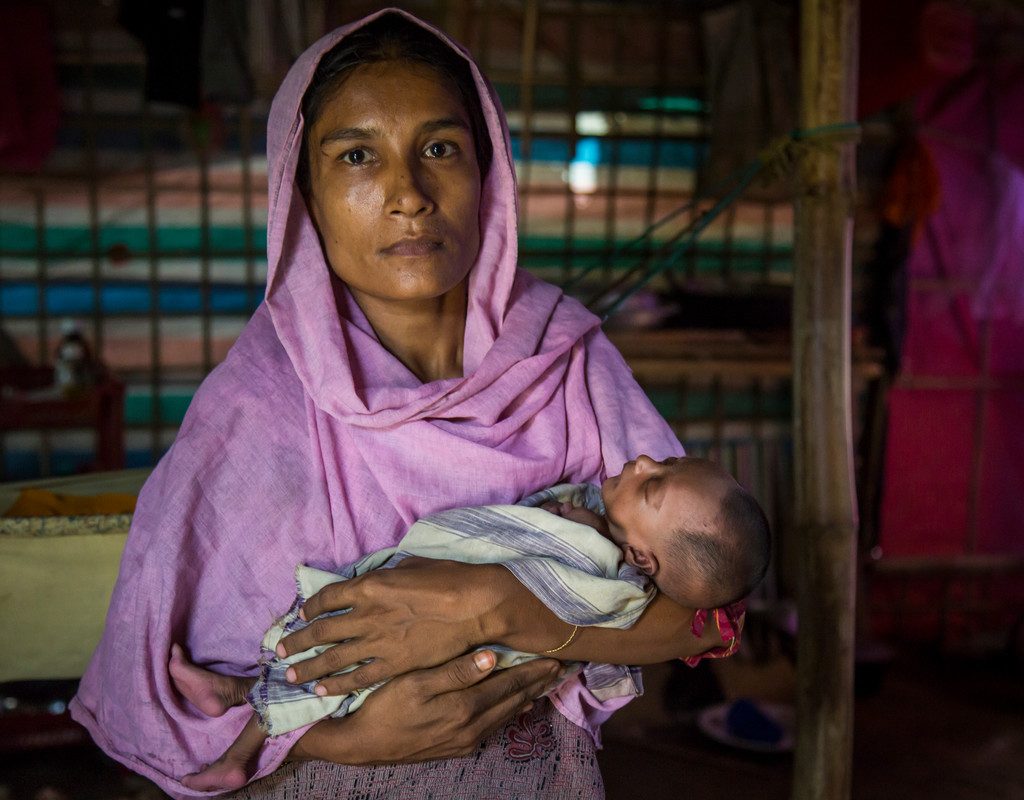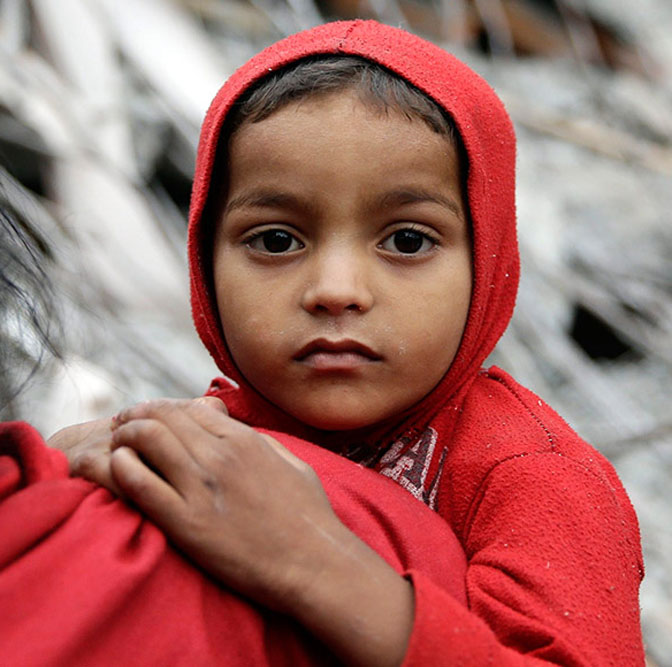“There were women on the boat but they were all in a panic because some of their relatives had died in fires, some had left loved ones behind so they were all distressed and crying,” Sakina said.
“They didn’t have time to pay attention to me. My step-mum was too weak so I gave birth and delivered my baby on my own.”
Sakina passed out during childbirth and was stretchered to a nearby house, where she recovered.
“I felt so happy when I saw my baby,” she said. “I forgot all my pain. I was too happy and my mind was at peace.”
When she spoke from the camp late last year, Sakina said she was not producing breastmilk and was worried about Noor’s health.
“I have not seen a doctor since the birth,” she said. “We don’t have money to visit a clinic. I just recovered on my own in the camp.
“We got a tube well installed recently and get water from there.
“I haven’t been able to breastfeed my baby. We are not living in our own place, we are under a lot of stress and we don’t always know where our next meal will come from so maybe that’s why I couldn’t produce breastmilk.”
ChildFund and its partners are supporting more than 70,000 refugees like Sakina and Noor by providing life-saving aid, counselling for people dealing with trauma, and constructing safe spaces for women and children.
As conditions worsen, urgent support is needed for refugees in Bangladesh. There is now only a matter of months to prepare the camps for monsoon rains, which will increase the risk of flooding, mudslides and put already vulnerable children and families at further risk.



